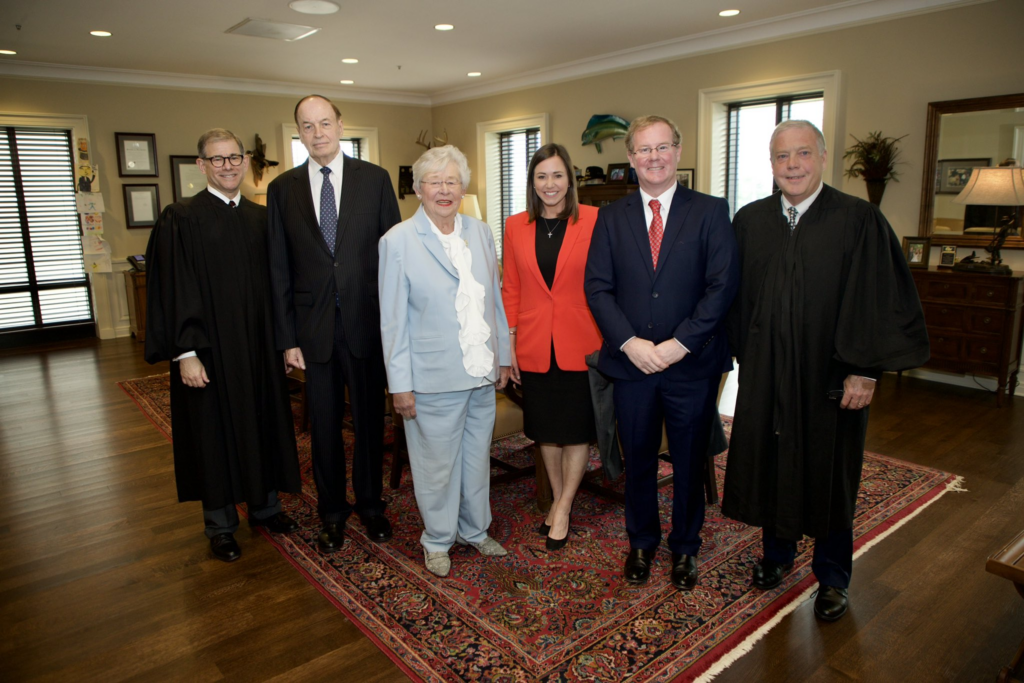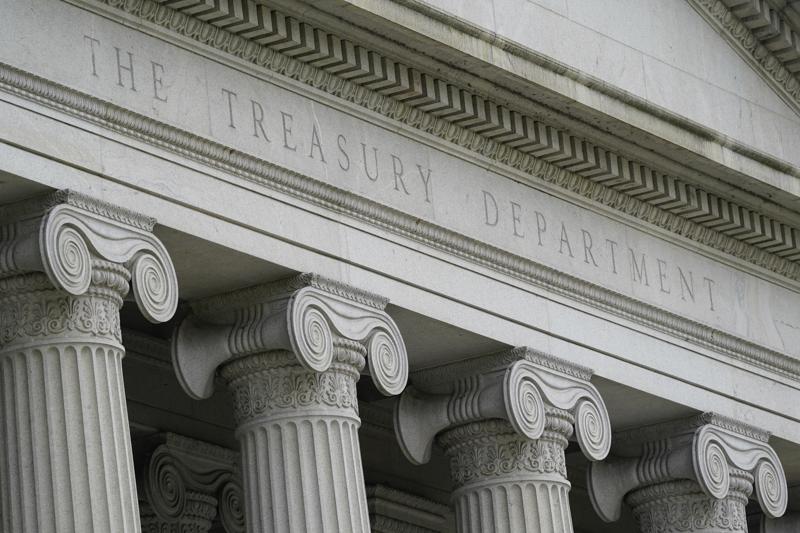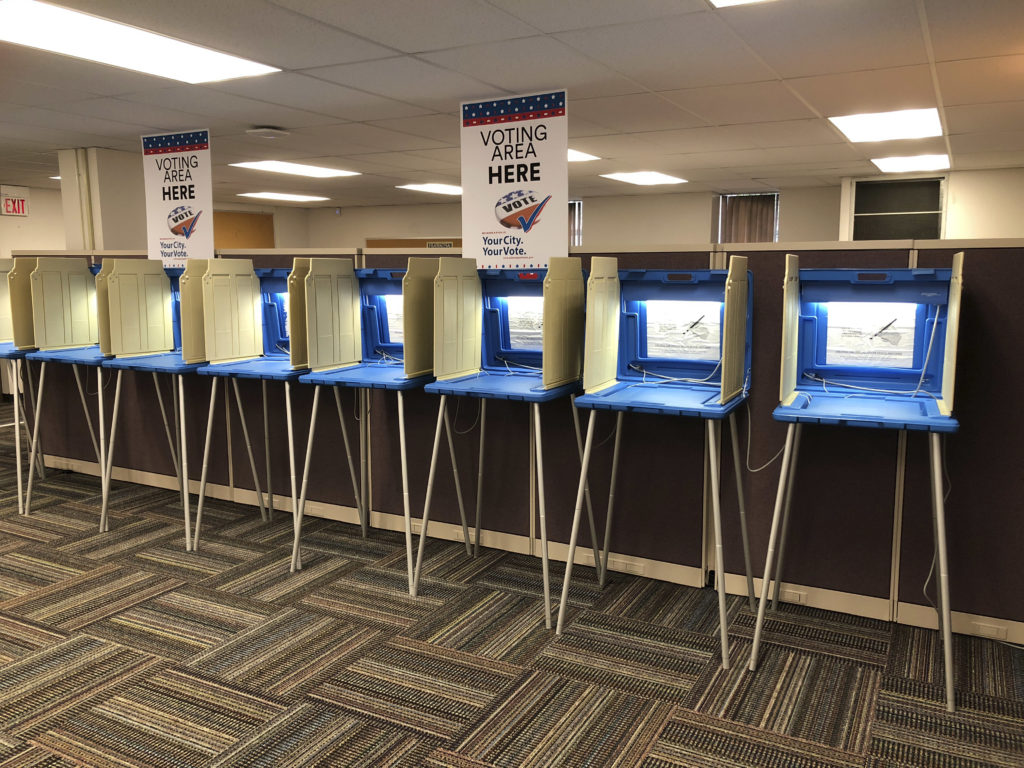Tuscaloosa federal building renamed in honor of Richard Shelby

On Friday, former U.S. Senator Richard Shelby (R-Alabama) was back home in Tuscaloosa, where the courthouse and federal building were renamed in his honor. Judge L. Scott Coogler said that Shelby “has touched each and every one of our lives.” Alabama Governor Kay Ivey said, “I am proud to join this historic occasion to pay tribute to Richard Shelby.” Ivey applauded the naming of the Courthouse in Shelby’s honor. “What an appropriate way to honor Richard Shelby,” Ivey said. “He laid the groundwork for our state’s economic development.” “In March, the Alabama Legislature held a joint session to honor Richard Shelby,” Ivey continued. “Thank you to Richard Shelby for his dedicated service to the State of Alabama.” Alabama Attorney General Steve Marshall said, “It is a privilege to be here today to celebrate the life of this man.” Marshall applauded the many projects that Shelby brought to the state, “What has truly been achieved far exceeds any dollar amount.” “Senator, thank you for your service, and may God bless you,” Marshall said. Federal judge and former Alabama Attorney General Bill Pryor said, “In 2009, I was here to celebrate the groundbreaking of this Courthouse. I thank Senator Shelby for his leadership for making this building possible. He could not be here then because he was in Washington attending to the nation’s business.” “If there is anything more important than securing the peace and prosperity of the nation, it is the rule of law,” stated Pryor. Pryor said that a federal courthouse secures the rights of the people every day. “Senator Shelby has recommended the names of many talented lawyers who have served and continue to serve as federal judges,” said Pryor. The judges applauded Shelby for “his lifelong commitment to defending the Constitution of the United States.” “Thank you for being a friend to the courts of the federal judiciary,” Pryor said. U.S. Senator Katie Britt (R-Alabama) said, “I have the best job of the day. I get to introduce Senator Shelby. It is truly an honor to introduce such a legendary Alabamian.” Britt thanked Senator Shelby “for his vision and his determination.” Katie Britt was an intern for Shelby, who later joined his staff, rising to the level of Chief of Staff. She returned to public life in 2022, winning Shelby’s open seat after he retired. “At a time when so many people wanted to serve in order to generate a headline, you genuinely wanted to serve,” Britt said. Sen. Shelby thanked the Governor, Britt, and everyone else for attending Friday’s event. “Thank you all very, very much for this great honor,” Shelby said Shelby’s grandchildren then unveiled a portrait of the Senator that will hang in the Courthouse. Shelby represented Alabama in the U.S. Senate from 1987 to 2022. He represented Alabama’s Seventh Congressional District from 1979 to 1986. He represented Tuscaloosa in the Alabama Senate from 1970 to 1978. Before becoming an elected official, Shelby worked as an assistant Alabama Attorney General and prosecutor for the City of Tuscaloosa. To connect with the author of this story or to comment, email brandonmreporter@gmail.com
Federal Courthouse in Tuscaloosa to be renamed for Richard Shelby

The U.S. Courthouse and Federal Building in downtown Tuscaloosa will be renamed on Friday, September 15, for former U.S. Senator Richard Shelby (R-Alabama). A ceremony will be held at 2:00 p.m. on September 15 inside the courthouse at 2005 University Blvd. to officially rename it the Richard Shelby Federal Building and Courthouse. Shelby, Alabama Gov. Kay Ivey, U.S. Sen. Katie Britt, and other officials and dignitaries are expected to attend. L. Scott Coogler is the Chief U.S. District Judge for the Northern District of Alabama. “Many years before construction began on the Tuscaloosa Federal Building and Courthouse in December 2009, Senator Shelby foresaw how important this building would be, not only to the federal court system but also to the citizens of Alabama,” said Judge Coogler. Shelby was honored by the West Alabama Chamber of Commerce during their annual awards banquet in February. “As he has done with so many other worthy causes that have benefitted the state of Alabama, Senator Shelby worked tirelessly to secure funding for this building,” Coogler added. “Without question, this building should bear his name.” President Joe Biden signed the legislation to rename the federal building in March 2022. The Courthouse houses the U.S. District and Bankruptcy courts, including courtrooms and support spaces, the U.S. Probation Office, the U.S. Marshals Service, the Federal Bureau of Investigation, U.S. Senator Katie Britt’s Office, the U.S. Attorney’s Office, the General Services Administration, and the Social Security Administration. The Alabama Legislature and Gov. Ivey honored Shelby with a special joint meeting of the Legislature in the historic 1859 House Chamber, where he served as a state legislator. Ivey said, “We are here today, honoring a friend to all of Alabama. To Richard Shelby, I say welcome home. We are honored to have you back.” “He is the state’s longest-serving Senator at 36 years,” Ivey said. Ivey said that out of all the great senators the state of Alabama has had, they have been “eclipsed by Senator Shelby.” Ivey praised Shelby for having steered hundreds of millions of dollars in engineering and sciences funding to Alabama colleges and universities, as well as Redstone Arsenal, the Port of Mobile, and other projects across the state. “We wish you the best, and we proudly welcome you back to our sweet home Alabama,” Ivey concluded. Lieutenant Governor Will Ainsworth said Shelby “should be forever known as Alabama’s greatest builder.” “Perhaps the most important and lasting thing that Richard Shelby has built is his legacy,” Ainsworth said. “His legacy will be felt long after Richard Shelby and all who gather in this room have passed by generations of Alabamians not yet born.” Shelby was a city prosecutor for the City of Tuscaloosa. He then became a special assistant Alabama Attorney General. He represented Tuscaloosa in the Alabama State Senate District from 1970 to 1978. In 1978, he was elected to represent Alabama’s Seventh Congressional District. He served four terms in the U.S. House of Representatives. In 1986, he was elected to the U.S. Senate. He served six terms in the Senate, ending his decades of public service in 2022. To connect with the author of this story or to comment, email brandonmreporter@gmail.com.
Justin Bogie: Alabama lawmakers must choose the people over bigger government

Despite the pandemic, the business of state government is booming in Alabama. It is past time for the state to give some of its newfound wealth back to citizens. A recent court ruling should pave the way for Alabama’s elected officials to do so if they choose to. But lawmakers already missed one opportunity. To recap, in March, Congress passed a second massive COVID-19 stimulus bill, the American Rescue Plan Act (ARPA). Alabama’s state government has already received half of its $2.1 billion allotment from the bill and will receive the second half early next year. So far, the state has committed $480 million of its ARPA funds, with the bulk of that going towards prison construction projects. In total, state government alone has been handed $4 billion in federal stimulus funds since the start of the pandemic. In addition to the stimulus money, the state saw $1.2 billion in new revenue flow into the state in 2021. Most of that money has been reinvested in the public sector. A controversial provision of ARPA blocked states from being able to cut taxes and then use stimulus funds to replace lost revenue. In response, 13 states, including Alabama, sued the Treasury Department, arguing that the federal government had no Constitutional authority to dictate state tax policy. On November 15th, U.S. District Court Judge L. Scott Coogler issued a permanent injunction against the provision, writing that the restriction is “a federal invasion of State sovereignty.” Coogler further wrote that the mandate pressures states into adopting federally preferred tax policy and disincentivizes states “from considering any tax reductions for fear of forfeiting ARPA funds.” The bottom line is that the federal court ruling clears the way for Alabama to use its ARPA funds for tax relief. It also proves that elected officials missed an opportunity to provide relief much sooner. Alabama received $1.8 billion from the Coronavirus Aid, Relief, and Economic Security Act (CARES) in 2020. In June of last year, the Alabama Policy Institute (API) presented a proposal to Governor Kay Ivey that would have set aside a portion of the state’s CARES funding to implement an extended statewide sales tax holiday. If the proposal had been adopted, it would have saved citizens money and provided a much-needed boost to Alabama’s brick and mortar businesses during the heart of the pandemic. Before presenting the proposal, API commissioned an outside legal opinion that determined a sales tax holiday was a permissible use of CARES Act funds. Ultimately the governor’s office refused to implement the sales tax holiday, hiding behind U.S. Treasury guidance that said the money couldn’t be used to replace lost revenue. However, other states, like Idaho, went full speed ahead with measures to reduce citizens’ tax burden. The federal government never intervened. If state government wanted to use CARES Act funds to provide a sales tax holiday, it likely would have been allowed. But the desire to use the money to grow government outweighed the need to help struggling citizens and businesses. While we as citizens cannot change past government actions, we can demand better for the future. There are a number of ways that Alabama’s government could use ARPA funds to help the citizens and business owners of this state. API believes that an extended sales tax holiday would still provide benefits to both, but there are other ways. Alabama is one of just three states that fully taxes grocery and food items, something that every person living here relies on. The stimulus funds would go a long way towards permanently eliminating that tax burden. Because of a rise in unemployment claims over the last two years, employers are now paying more in unemployment compensation tax than they were before the pandemic. In 2021 the employer tax rate increased by 92 percent, adding additional strain to businesses already hit hard by COVID-related shutdowns. The state could use ARPA funds to reduce unemployment taxes in 2022. The state has more than $1.5 billion in remaining ARPA funds at its disposal. To put that in perspective, it is enough money to eliminate unemployment taxes for up to six years. It could wipe out the grocery tax for three years. That’s not including this year’s $1.2 billion revenue windfall. Regardless of the method, Alabama citizens deserve tax relief. A federal court has already ruled that Washington cannot tell Alabama and other states how to use that money. If lawmakers fail to provide tax relief to the citizens of Alabama, it is because they chose government over the people they are elected to serve, not because they can’t. Justin Bogie is the Senior Director of Fiscal Policy for the Alabama Policy Institute.
Judge blocks tax cut rule in American Rescue Plan

A federal judge has blocked the U.S. Treasury from enforcing a provision of the American Rescue Plan Act that prohibited states from using the pandemic relief funds to offset new tax cuts. U.S. District Judge L. Scott Coogler ruled Monday in Alabama that Congress exceeded its power in putting the so-called tax mandate on states. He entered a final judgment in favor of 13 states that had filed a lawsuit and instructed the Treasury Department not to enforce the provision. The judge left the rest of the law in place. The American Rescue Plan steered $195 billion in flexible relief funds to states but specified that states could not use it as a means to cut taxes by using the federal relief dollars to offset the revenue reduction. The judge described the tax-cut restrictions as “a federal invasion of State sovereignty” that was “unconstitutionally ambiguous” — leaving states guessing as to whether their tax cuts would trigger a repayment of federal funds. “The Tax Mandate’s restriction on direct or indirect state tax cuts pressures States into adopting a particular — and federally preferred — tax policy,” Coogler wrote. That “may disincentive” states “from considering any tax reductions for fear of forfeiting ARPA funds,” The lawsuit was filed by Alabama, Arkansas, Alaska, Florida, Iowa, Kansas, Montana, New Hampshire, Oklahoma, South Carolina, South Dakota, Utah, and West Virginia. Alabama Attorney General Steve Marshall called those tax-cut restrictions “an unprecedented and unconstitutional assault on state sovereignty by the federal government.” Officials from other states on Tuesday also praised the ruling. West Virginia Attorney General Patrick Morrisey said the decision “ensures our citizens aren’t stuck with an unforeseen bill from the feds years from now.” Kansas Attorney General Derek Schmidt said it “clears the way” for the state to pursue a sales tax cut on groceries “without fear of federal reprisal.” Justice Department lawyers representing the Treasury Department argued the money should be used for its intended purpose — pandemic recovery. “Congress did not provide Rescue Plan funds for States to replace purposeful decreases in net tax revenue; it provided the money to help States economically recover from the pandemic in ways they otherwise could not,” federal lawyers wrote in an August court filing. Federal government lawyers added, “states are free to cut all the taxes they want, as long as they do not use the federal aid to ‘offset’ any decreased revenue.” Republished with the permission of the Associated Press.
Steve Flowers: Alabama will miss Richard Shelby, immensely

In only 21 short months, at the close of 2022, Alabama will lose the greatest senator in our state’s history. Those of us who are political historians will acknowledge Richard Shelby as Alabama’s most pronounced political emissary in Washington. In my 2015 book, Six Decades of Alabama Political History, I have a chapter titled “Alabama’s Three Greatest Senators,” which features Lister Hill, John Sparkman, and Richard Shelby. Lister Hill and John Sparkman were icons but, if we’re writing that chapter today, Richard Shelby would be alone as the premier “Giant of Alabama.” Hill served in the Senate for 30 years and Sparkman for 32 years. Shelby eclipsed Sparkman’s record two years ago and at the end of his term will set the bar at 36 years. It should also be noted that Senators Shelby, Hill, and Sparkman served nearly a decade or more in the U.S. House of Representatives. Senator Shelby is now in his 43rd year in Washington. Seniority is king and paramount in assessing power under the Capitol dome. However, what you do with that seniority is what makes one great. The average voter and citizen of our beloved state does not comprehend the magnitude of the federal largesse that Richard Shelby has brought home to the Heart of Dixie. His strength, power, and resolve have resulted in countless improvements to every corner of our state. It would take volumes and annals to chronicle the federal dollars that Shelby has funneled to Alabama throughout his career. Beginning with the coastal area of Mobile and the Docks, to the Wiregrass and Fort Rucker, to Montgomery’s Maxwell and Gunter; to UAB in Birmingham, and finally Shelby’s impact on the growth and prosperity of the Redstone Arsenal in Huntsville, are incomprehensible. Folks, when you combine all of the aforementioned economic engines, we are not talking about a couple million extra federal dollars but more like hundreds of millions of federal dollars. Shelby has been the savior of these centers of economic growth and employment in our state. The two most important, UAB and Redstone Arsenal, owe their growth and prosperity to Shelby’s ability to bring home the bacon. He has had the most profound impact over the last few years as Chairman of the U.S. Senate Appropriations Committee. He very adroitly kept in conjunction the Chairmanship of the Subcommittee on Defense Appropriations. If you do not think defense dollars are important to Alabamians, simply ask the folks in the Wiregrass and Montgomery’s River Region what Ft. Rucker and Maxwell/Gunter mean to them. Also, Huntsville would be a sleepy little cotton town if it were not for the Redstone Arsenal. While Shelby was not in the U.S. Senate when these facilities were placed in Alabama, you can bet your bottom dollar that they have flourished, prospered, and more than likely survived because of Richard Shelby. Senator Shelby and I have been friends for over 35 years. I was a part of his inaugural 1986 triumphant election to the Senate. To know him personally is to see a man that you instantly recognize as a once-in-a-lifetime giant. He is extremely witty and personable with a keen lawyer’s mind that analyzes your words as soon as they come out of your mouth. Indeed, he was a brilliant and very successful lawyer before entering Congress. If he had not gone into politics, he could have become a billionaire as a Wall Street Lawyer. As Shelby eloquently said in his retirement statement, there is a time for every season. He will be 87 in May of this year and 88 at the end of this term. He deserves some private years. He enjoys time with his wife and best friend of over 60 years, Annette Shelby. He will enjoy being at home in his beloved Tuscaloosa and hunting occasionally with his buddies, Joe Perkins and Judge L. Scott Coogler. Maybe he will have time to reminisce with some of us who like to share old Alabama political stories. In closing, there will be plenty of time to observe the fray that will be developing to follow the legend of Richard Shelby, but no one will ever fill his shoes. As I traversed the state doing television interviews the day of Shelby’s announcement, I became melancholy and almost tearful for Alabama’s sake. While driving between Montgomery and Birmingham, I had a lengthy telephone conversation with the lady who has been Shelby’s real Chief of Staff, confidant, and gatekeeper his entire career in Congress. She very aptly told me to tell the people of Alabama that whoever follows Shelby, even if brilliant, will be 20 years in waiting and learning before they will be able to wield any power. She is correct. Seniority is king in Washington. See you next week. Steve Flowers is Alabama’s leading political columnist. His weekly column appears in over 60 Alabama newspapers. He served 16 years in the state legislature. Steve may be reached at www.steveflowers.us.
Appeals court allows Alabama voter ID law to go forward

Federal appeals judges upheld a lower court Tuesday and rejected claims that an Alabama law which requires voters to show government-issued photo identification at the polls is racially discriminatory. The decision by a three-judge panel of the 11th U.S. Court of Appeals, which upheld a 2018 ruling that dismissed a lawsuit filed by the NAACP and others, was a victory for Republicans who contend the law is needed to prevent voter fraud. Rebuffing opponents who argued the law violated the Constitution and the Voting Rights Act, the court ruled that “no reasonable factfinder could find that Alabama’s voter ID law is unconstitutionally discriminatory” based on the evidence. But Judge Darrin P. Gayles, a district judge who heard the case with the circuit judges, dissented in an opinion that noted Alabama’s “deep and troubled history of racial discrimination” and voter suppression. While some absentee fraud occurs, Gayle wrote, in-person voting fraud is ”virtually non-existent.” “Opponents have repeatedly argued that Alabama’s voter ID law’s requirement that a voter must provide a photo ID is overly burdensome. As I have previously stated, Alabama’s voter identification law, by both design and practice, is easily satisfied, and it contains procedures to allow anyone who does not have a photo ID to obtain one. The appeals court in its opinion agreed,” Alabama Attorney General Steve Marshall said in a statement Tuesday. Secretary of State John H. Merrill said the ruling affirmed that the state’s voter ID law is valid. “Noting the various forms of valid photo ID accepted by the State of Alabama to vote and how simple and free it is to acquire a photo ID, it is apparent from today’s ruling that the state’s photo ID law is fair and non-burdensome to voters,” Merrill said. He also said his office has “worked to see that every eligible resident of our state, who is interested, is registered to vote and has a photo ID.” The Alabama lawsuit was among the legal battles in the U.S. between voting rights advocates, who say the measures are aimed at suppressing voter turnout, and conservative states that argue the protections are needed to ensure honest elections. U.S. District Judge L. Scott Coogler had ruled in favor of the state in 2018, saying the provision does not discriminate against minorities and was not an undue infringement on the right to vote since the state made free identification cards available for voting purposes. Alabama has required voters to show government ID when they vote since 2014. State lawmakers approved the photo ID law in 2011 after the GOP took control of the Legislature. They argued the measure was needed to combat potential voter fraud. The Alabama State Conference of the NAACP, Greater Birmingham Ministries and minority voters had sued over the law in 2015, calling it discriminatory and an infringement on voting rights. They contended Alabama politicians knew when they enacted it that black and Latino voters disproportionately lack photo ID. In his dissent, Gayles cited remarks by a one-time white Republican lawmaker who said the lack of a photo ID law was “very beneficial to the Black power structure and the rest of the Democrats.” The majority opinion, written by Circuit Judge Elizabeth Branch on behalf of herself and Circuit Judge Ed Carnes, noted the steps the state has taken to make identification cards available to voters, including mobile units. Critics of the law did not prove it violates equal protection standards, she wrote, and the state was able to show non-discriminatory reasons for requiring voters to show identification. While noting complaints about the state’s record of racism against Blacks, Branch wrote that “it cannot be that Alabama’s history bans its legislature from ever enacting otherwise constitutional laws about voting.” Republished with the permission of the Associated Press.
Federal judge dismisses challenge to Alabama voter ID law

A federal judge has dismissed a lawsuit challenging the constitutionality of Alabama’s voter ID law. U.S. District Judge L. Scott Coogler on Wednesday rejected arguments — by the Greater Birmingham Ministries and the Alabama NAACP — that requiring a photo ID to vote is racial discrimination, denies equal protection and violates the Voting Rights Act, as well as the Fourteenth and Fifteenth Amendments of the U.S. Constitution. The groups had filed a lawsuit against Alabama Secretary of State John Merrill among other former state officials over a 2011 law, House Bill 19, which requires absentee and in-person voters to show photo identification in order to cast a ballot. The suit contended the law had disenfranchised some 280,000 voters and threatened hundreds of thousands more. Judge Coogler noted in his order that it is easy for anyone to get a photo in ID in Alabama, thus the law is not discriminatory. “…A person who does not have a photo ID today is not prevented from voting if he or she can easily get one, and it is so easy to get a photo ID in Alabama, no on is prevented from voting,” Coogler wrote in the order. He also determined “minorities do not have less opportunity to vote under Alabama Photo ID law because everyone has the same opportunity to obtain an ID.” Alabama’s Republican Attorney General Steve Marshall called the decision to dismiss the suit, the right decision. “Today’s decision to dismiss the lawsuit is without a doubt the right decision,” said Marshall. “Alabama’s voter identification law is one of the broadest in the nation with procedures in place to allow anyone who does not have a photo ID to obtain one.” But NAACP Legal Defense and Education Fund President Sherrilyn Ifill said the group is not giving up and is considering its next steps. “We are deeply disappointed by the judge’s ruling dismissing our case before trial,” said Ifill. “Over the course of two years, we have developed a sound case demonstrating that Alabama’s voter ID law is racially discriminatory. We had hoped to present our full case at trial next month. We have no intention of abandoning our commitment to protecting the rights of African-American voters in Alabama, and we are considering our next steps.” View the full court order below:

